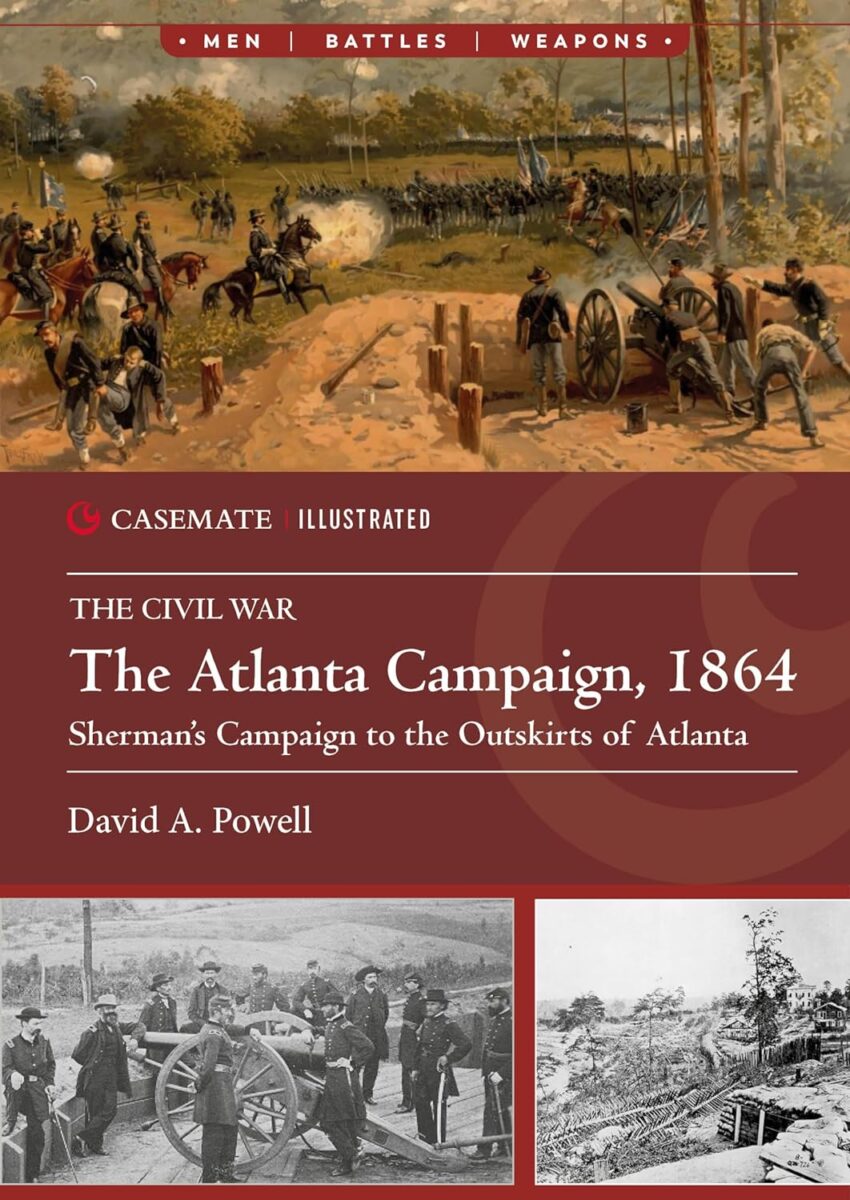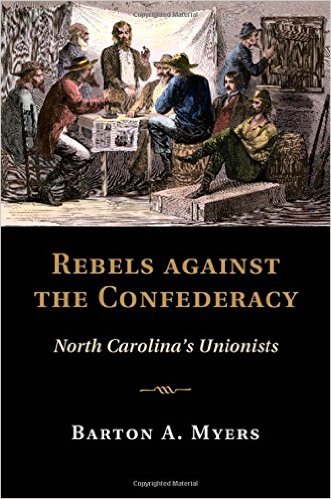After decades of relative neglect, the Atlanta Campaign no longer lacks capable storytellers. William T. Sherman’s campaign in north Georgia now lays claim to numerous superb treatments that run the spectrum between academic and popular. In this first of two volumes, David A. Powell, the author of numerous works on the battles of Chickamauga and Chattanooga, moves his strong storytelling abilities forward chronologically to offer readers a brief, accessible, and beautifully illustrated overview of one of the Civil War’s most important turning points.
Part of Casemate Publishers’ Illustrated book series geared towards military history buffs, Powell’s The Atlanta Campaign, 1864 is a strong addition to a collection of works that have largely been focused on World War II. Structured around a broad chronological narrative, the book essentially serves as a short survey text of the Atlanta Campaign—one that can be an introduction for novices or an effective refresher for more seasoned students of the war in Georgia.
Beginning with contextual overviews of Sherman’s and Joseph E. Johnston’s armies and their operational histories, Powell, in twelve short chapters, carries his readers through the campaign’s important episodes before ending his narrative with Johnston’s ouster and John Bell Hood’s assumption of Confederate command. Whether it be a photograph of a monument, a period sketch, or a map, each illustration is accompanied by an explanatory caption. Powell also provides brief stand-alone biographical essays of Sherman, Johnston, and Wilbur Kurtz, one of the Atlanta Campaign’s earliest historians, the founder of the city’s Civil War Roundtable, and a technical advisor on films such as Gone With the Wind and The Great Locomotive Chase.
True to the promise of the series’ tagline, “Men. Battles. Weapons,” Powell’s volume is almost exclusively traditional military history. The inclusion of Kurtz’s profile and his conclusion in which he concisely chronicles the post-war feud between Johnston and Hood are two of the only times the author extends his narrative beyond the battlefield.
That battlefield narrative, however, is to be commended for its detail, concision, and argumentative edge. More than just battlefield clashes and flashy maneuvers, Powell discusses supply, logistics, and engineering—important topics that often receive short shrift in popular literature. Powell’s assessments of Sherman and Johnston are nuanced and historiographically informed. Absent are the caricature-esque portrayals and sectional biases that sometimes plague popular Civil War histories. Sherman is criticized for his fiery temper and impatience but is credited as a meticulous planner and for being one of the few generals of the war who realized that maneuver could accomplish the same goals as pitched battle. Likewise, Johnston is depicted as secretive, conspiratorial, and timid, yet also heir to an unenviable situation.
The slim volume’s assets extend beyond its narrative. A timeline, order of battle, and multiple battle maps will be handy resources for travelers looking to follow in the footsteps of Sherman’s and Johnston’s soldiers or genealogists hoping to learn more about their Civil War ancestors. Some readers may find issue with the volume’s lack of citations, bibliography, or a “suggested reading” section. The last of which would be especially beneficial in steering readers towards the campaign’s foundational and more comprehensive studies.
This brief overview of the Atlanta Campaign succeeds in providing its audience with an accessible and visually compelling overview of one of the war’s most pivotal moments. Interested readers should also anticipate Powell’s multi-volume history of the Atlanta Campaign, the first of which will be published this summer with Savas Beatie. If the author’s earlier works on the Western Theater are any indication, these promise to be excellent studies.
Robert L. Glaze teaches history courses for Georgia Military College and Lincoln Memorial University. He is currently revising his manuscript, “Experiencing Defeat, Remembering Victory: The Army of Tennessee in Civil War Memory.”





